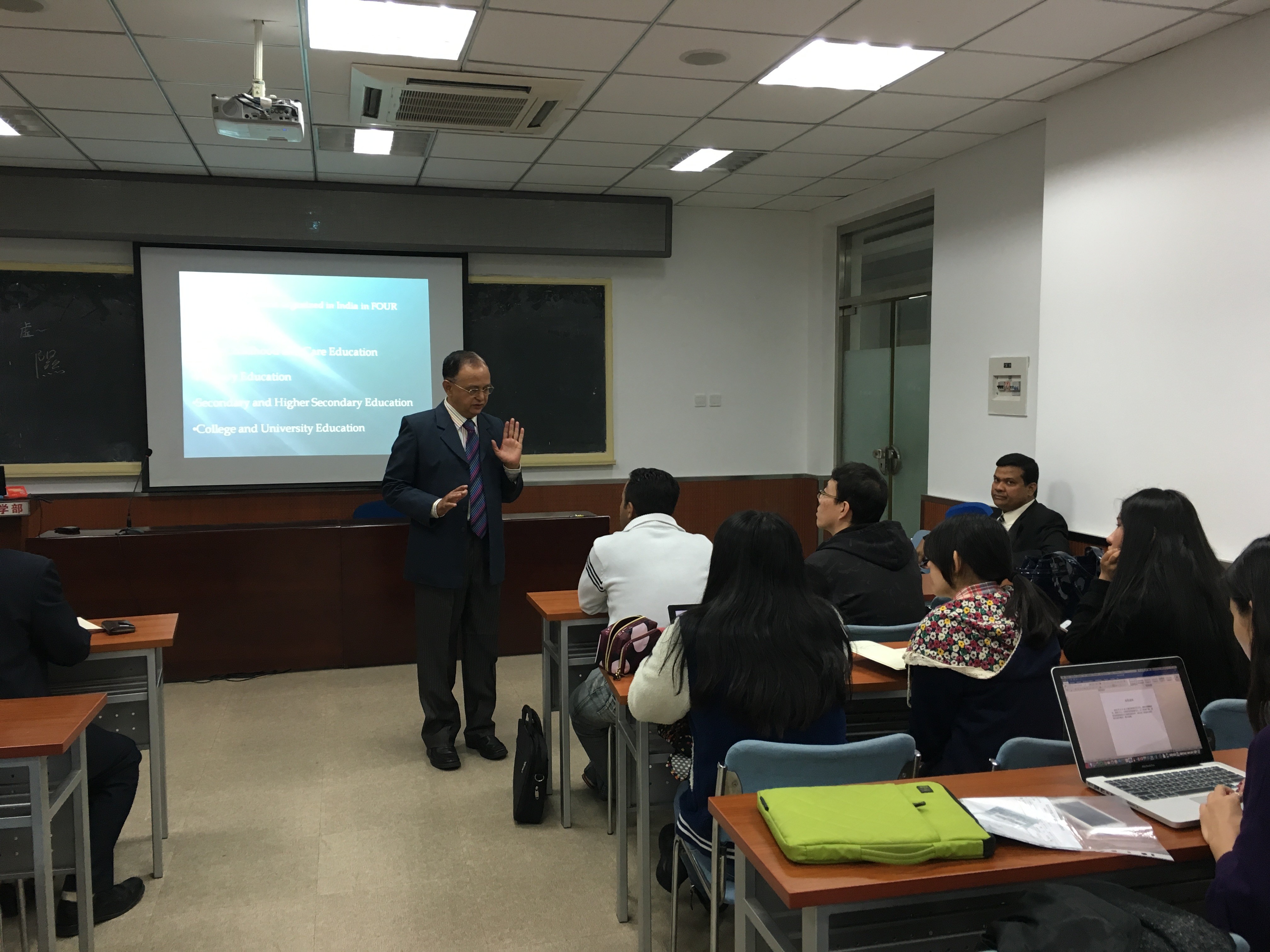On Oct. 22, 2015, Professor R.G. Kothari and Professor K. Pushpanadham from the M.S. University of Baroda, India, delivered a lecture entitled “India’s Revolution of Teacher Education: the Example of Teacher Training Courses” for the IICE’s International Education Podium. The lecture was chaired by IICE Associate Professor YANG Mingquan and attended by Master’s and PhD students.
Professor Kothari is Dean of the Department of Education and Psychology of the university. His main research interests are in the areas of mathematics teaching, teacher education, research methodology, and higher education. Professor Pushpanadham is from the same department and his research interests are in educational administration, research methodology, sociology of education, human resource development in education, teacher education, ICT in education, and E-learning methodology.
The lecture was divided into two parts: the revolution of pre-school education and basic education and the revolution of higher education. Professor Kothari first briefly introduced his university and India’s whole education system. Then, he highlighted the importance of teacher training based on the argument that teacher training decides the success and failure of a country’s education. He later introduced training for kindergarten teachers, primary, and secondary school teachers in India; he also introduced normal (teacher training) universities’ curriculum and credit systems. Then, Professor Pushpanadham introduced teacher training in higher education institutions and pointed out that this training differs from that of kindergartens, primary and secondary schools. He noted that, in India, a university teacher’s quality decides the academic performance of that university, which is directly connected to the amount of allocation it can receive from the government. He noted that, for that reason, concerned parties attach great importance to the quality assessment of university teachers based on their curriculum, teaching results, research ability, innovation and so on.
At the end of the lecture, the two professors had exchanges with all the attendees around such topics as teacher education evaluation, teacher education in a multi-cultural environment, and rural teacher education. The lecture ended with Professor YANG’s summary of the event.

